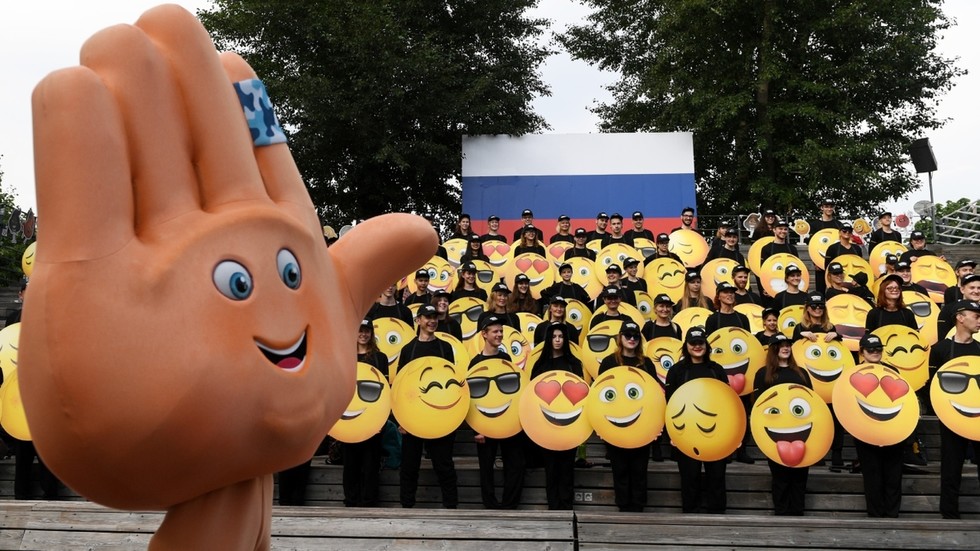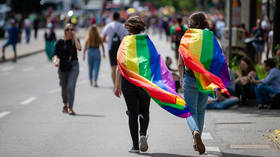
Some of the pictograms used in smartphones promote LGBTQ values in violation of the country’s laws, Aleksey Zhuravlev has said

An attempt to enter the Guinness World Records book of records in the category Biggest Group of People in Emoji Costumes in Moscow. © Sputnik / Valery Melnikov
At least two dozen emojis found in smartphones promote nontraditional sexual relations and should be banned in Russia, the first deputy chairman of the parliamentary defense committee, Aleksey Zhuravlev has stated.
Some pictograms depict “same-sex couples with children, kissing men, kissing women, a pregnant man, a male-bride with a mustache, bearded women” and others, the lawmaker told Rossiyskaya Gazeta on Friday. Zhuravlev is the leader of the Rodina (Motherland) party and a member of the Liberal Democratic Party of Russia (LDPR) in the State Duma.
Emojis are mainly employed in instant messengers and social media sites, which are the most popular platforms among users, he noted.
“All this is seen by kids, who constantly send those emojis to each other,” Zhuravlev said.

Read more
The MP pointed out that a law banning LGBTQ propaganda in Russia is already in force, insisting that the pictograms represent “exactly the type of propaganda” that it’s supposed to tackle.
“Measures must be taken to remove those emojis and block their use in Russia,” he declared.
A ban on disseminating LGBTQ material among those aged under 18 was introduced in Russia in 2013.
In 2022, the legislation was expanded to include both minors and adults. The law on the “protection of traditional values” made it illegal to promote LGBTQ, pedophilia, and sex changes in advertising, books, movies, and media.
In November last year, Russia’s Supreme Court outlawed the “international LGBTQ public movement,” designating it an extremist organization.




